‘Operating at the cutting edge of strategy and execution’
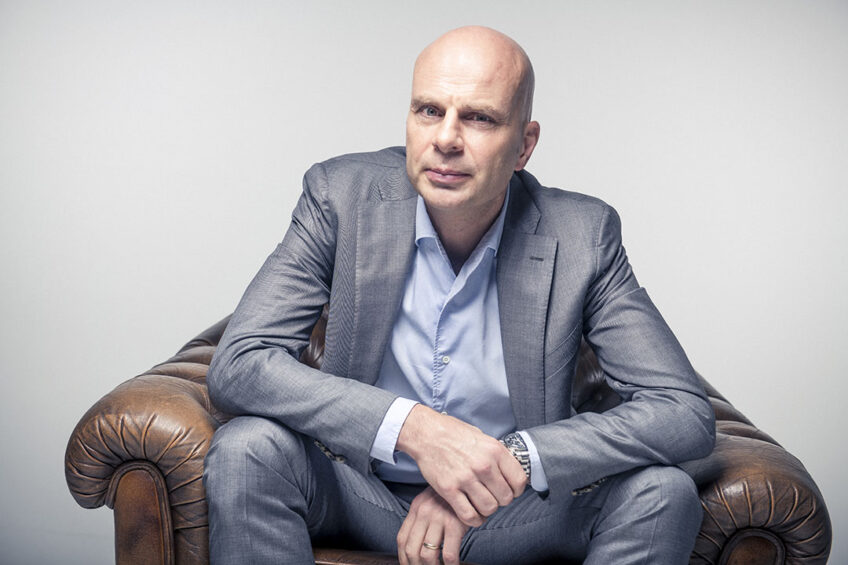
The last 2 years have been intense for Hamlet Protein’s CEO Erik Visser, tasked with realising the company’s serious international ambitions while changing the corporate culture and optimising results at a time when the world was full of challenges. Together with Poultry World he reflects on this period and looks ahead to further revamping Hamlet’s operations.
”Hamlet Protein has undergone quite a metamorphosis in the past 2 years,” says the company’s CEO, Erik Visser. Since his appointment, Visser has focused on changing the culture and promoting a truely customer-centred approach.
“Driving organisational culture all starts with behaviour. In our company, we aim to be more than just colleagues working alongside each other; we want to be real ’compañeros’ that invest in personal and professional relationships to achieve our goals together. Externally, we have gone from acquiring knowledge to sharing knowledge. We no longer focus on the technical specifications of our product alone but have increasingly become the knowledge partners of our clients. And, last but not least, we want to operate in a clean and transparent manner which, in itself, is very close to the Danish culture – to do what we promise and contribute to more sustainable agriculture,” he says.
Hamlet Protein was established in 1989 in the rural town of Horsens in Denmark. Its founder envisaged the development of a natural feed ingredient that would improve the health and well-being of young farm animals. In 1993 Hamlet entered the market with HP 100 and HP 300 for calf milk replacers and piglet weaning feed, respectively. HP 800 Booster for challenged piglets and HP AviStart for broilers followed in 2011. More recently the company introduced FiberBoost and Avisure. Since 2015, the company has been owned by 2 private equity funds, Altor, and Goldman Sachs. With plants and labs in the US and Denmark and a sales office in China, Hamlet Protein services customers worldwide.
Visser is entirely committed to the company and proud of his people and what they have accomplished. Yet, he still sees plenty of opportunities for the future development of Hamlet Protein as a global leader in the production of specialty feed ingredients for young animals. The company’s patented technology, which minimises the anti-nutritional factors that impact feed digestion in young animals, is in high demand.
“We are in the middle of a transition from being a protein expert to becoming a gut health knowledge partner. Part of that transition involves us transforming from a somewhat internally-focused Danish company with international clients, to a truly open and global company with Danish roots,” says Visser, adding, “I enjoy being close to our markets and involved in strategic planning, as well as the implementation and execution of our growth initiatives. Operating in a hands-on environment, right where the action is, has always motivated me.”

I can imagine that this transition is quite ambitious, especially in this volatile market environment.
“There are many challenges in our industry but, in my view, we have shown ourselves to be innovative and resilient under changing conditions. Today we see an imbalance in global supply chains, in animal protein demand, labour availability and energy pricing. Of course, that has an affect on our business. However, there are always short-term issues in our industry – if the problem is not Covid-related then it is related to animal diseases or even geopolitical issues. I tend to look at the underlying factors in our industry and they are as positive as ever. It is true that – in developed markets – the demand for alternative proteins is growing, but this is offset by a growing global population, in general, and stronger growth in demand for animal protein in developing countries, specifically.”
FreeBirds project advances organic production
The aim of the pan-European FreeBirds project has been to develop successful husbandry practices in organic production to ensure chickens spend more time outdoors. Read more…
How does that reflect on Hamlet Protein’s direct business?
“The profitability of producing animal protein is under pressure due to high feed costs and inflationary pressure across the supply chain. We must produce more with less. And as everyone in the poultry industry knows, overall lifetime performance depends on having the right nutrition at the early life stages. That’s why we like to say that a good start makes all the difference. Due to their immature gut system, young birds do not digest soy well, that’s where Hamlet Protein comes in. Our soy-based vegetable protein specialty ingredients drive performance and health, and ultimately that improves the profitability of the producer. These benefits become even more important with the reduction of antibiotic growth promotors and the phasing out of medicated feeds.”
Your production process is quite energy intensive. How does that fit in with your sustainability goals?
“Sustainability is at the core of what we do at Hamlet Protein. We continuously work to reduce our CO2 footprint through the optimisation of our production efficiency and supply chain. In December 2019, we built the biggest heat pumping facility in Denmark which transfers excess heat from Hamlet’s production facility to provide heating for more than 3,000 local households. This unique public-private venture clearly confirms Hamlet’s commitment to sustainable production processes resulting in direct gains for both the climate and the community. Besides which Denmark has a good supply of ‘green’ electricity from our windfarms, both onshore and offshore. In our US facility we re-circulate excess heat from our production process to power our plant.”
Poultry World edition 10 of 2021 now online
This edition highlights the importance of managing stress to improve broiler welfare and improve returns. Veterinary virologist, Professor Hans Nauwynck, notes that the way the veterinary world keeps viruses under control is an example for human virology. Then, a look at the state of soybeans and sustainability concerns around its high consumption in poultry production. Read Poultry World edition 10…
Sustainability and circularity are among the drivers behind the European Commission’s decision to reintroduce processed animal proteins (PAPs) in animal feed. What do you think about that?
“In my view the re-introduction of PAPs was a necessary step to pave the way for insect protein in diet formulations. The availability of alternative protein sources is important as we need to feed a growing world population, however, I do not see the industry going back to the old days with PAPs derived from animal by-products, even though the new legislation allows for that. While some will welcome the decision, we believe that PAPs are not the missing link in animal feed production. The feed industry adapted well with vegetal protein and the use of phytase to replace the missing phosphorus. For multi-species feed mills the risk of cross-contamination cannot be ignored. Finally, the consumer’s opinion is what matters most and the use of animal protein ingredients in animal diets may very well come under pressure in the future.”
And how do you see PAPs in relation to the ‘all veg’ approach of Hamlet?
“It’s important to note that current diets have changed compared to when PAPs were allowed in the past. The use of AGPs has been banned and from next year onwards zinc oxide will no longer be allowed in the EU. It is well known that animal proteins (e.g. meat, fish) are predisposing factors to intestinal inflammation, such as necrotic enteritis by Clostridium. That begs the question: are nutritionists going to take the risk of using meat meal again but then without any AGPs? I do not see PAPs as a threat to our Hamlet Protein business. The high digestibility level of the Hamlet Protein product range is essential for young animals and it can be used in a fully vegetarian diet, which makes it an increasingly attractive option for our customers. The quality of raw material is now more important than ever as there is nothing anymore to ‘hide behind’ in the diet.”
EU lifts ban on using animal by-products for poultry feed
The EU has lifted its ban on the use of animal by-products for animal feed. The proposed change in legislation allows processed animal protein from pigs to be used in poultry feed and from poultry to be used in pig feed. On 2 July, the EU Council voted unanimously to adopt the regulation. Read more…
With over 2 years at the helm of Hamlet, where do you want to be in 2 years’ time?
“Despite some short-term issues from the Covid-19 pandemic, our industry is booming. Overall, animal protein demand will keep on growing; animal vegetarian diets are the way forward and antibiotic use will come under increasing pressure. That also drives the need for alternative solutions for gut health development. That’s why Hamlet Protein has introduced a completely new range of fibre products and we expect to expand our market coverage in the coming years.”
“We focus on a specific segment – the young animal. With our poultry product, Avistart, and the slightly less processed Avisure at a lower price point, we are all set for the future. Exceptionally good products that have been well received in the market. And with our recently launched Avisure we are specifically targeting the US broiler and turkey market.”
“Longer term we want to invest in more capacity in China where our product is in high demand, and even more so since the Chinese legislators banned the use of AGPs. We have invested in people, production and processes. With global species experts and local resources in our target markets, we are closely following the industry trends and are well positioned to respond to the needs of our customers. Our species-specific insights, unparalleled research, experience and unique diet formulation knowledge has enabled us to evolve and expand from nutritional expertise to health expertise. With clear answers on how to promote gut health in young animals, Hamlet Protein will continue to grow as the partner of choice for technical buyers across the world. We make a difference right from the start – which is how we build long term partnerships.”
 Beheer
Beheer

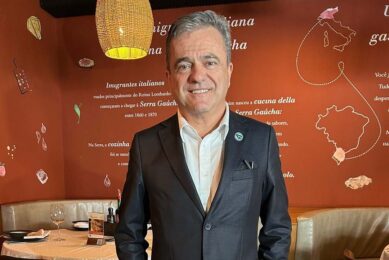
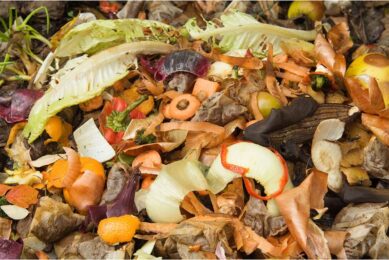
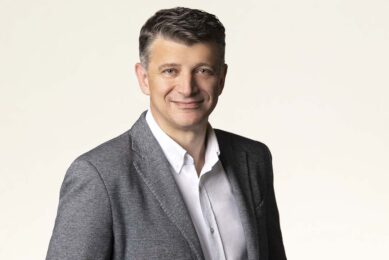
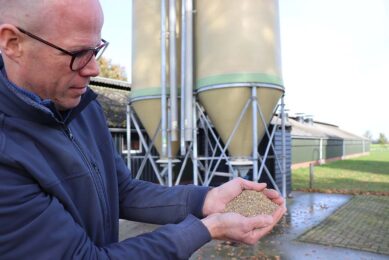



 WP Admin
WP Admin  Bewerk bericht
Bewerk bericht